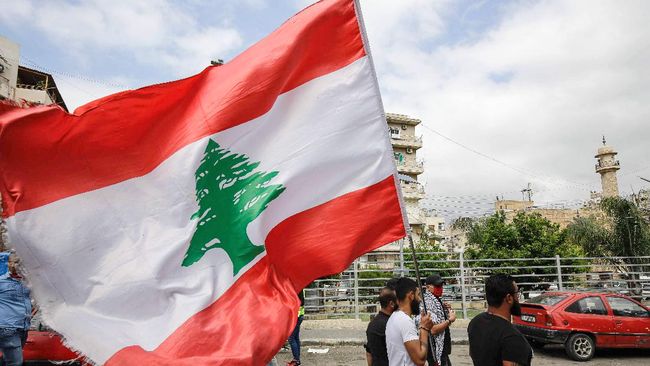Jakarta, CNN Indonesia —
Government Lebanon and militia Hizbullah agree to a cease-fire proposal by Israel proposed by the United States.
An assistant to the Speaker of the Lebanese Parliament Nabih Berri, Ali Hassan Khalil, said that Lebanon had submitted its written response to the US Ambassador in Lebanon to resume negotiations.
SEVENTEEN
CHECK TO CONTINUE WITH INDEX
Hezbollah also supports the Lebanese government in negotiating a ceasefire.
“Lebanon expressed its views on the (ceasefire) document in good spirits,” Khalil said, as reported by Reuters.
“All comments we submitted confirm that Resolution 1701 (UN) is properly complied with with all the provisions,” he said.
He referred to UN Security Council Resolution 1701, which ended the war between Hezbollah and Israel in 2006. In the resolution, Hezbollah cannot be in the area between the Lebanon-Israel border and the Litani River on the end
Khalil said that the success of this campaign now depends on Israel. He said that if Israel does not want a solution, it could cause 100 problems.
Israel has long claimed that Resolution 1701 was not properly implemented, citing the presence of Hezbollah militias and weapons on the border. In addition, Lebanon also accused Israel of violations including warplanes flying in its airspace.
(dna/dna)
2024-11-19 04:31:00
#HezbollahLebanon #Agrees #Proposal #Ceasefire #Israel
What key factors influenced Lebanon and Hizbullah’s decision to accept the cease-fire proposal from Israel as suggested by the United States?
1. As per the news article, Lebanon and Hizbullah have agreed to a cease-fire proposal by Israel proposed by the United States. What are the reasons behind their decision to accept this cease-fire proposal, and what role did the international community play in facilitating this agreement?
2. The cease-fire agreement is based on UN Security Council Resolution 1701, which ended the war between Hezbollah and Israel in 2006. How effective has Resolution 1701 been in maintaining peace along the Lebanon-Israel border, and what challenges have emerged since its adoption?
3. The success of the cease-fire now depends on Israel, according to Khalil. What steps must Israel take to ensure a long-lasting solution? Additionally, how can other regional actors, such as Syria and Iran, contribute to maintaining stability in the region?
4. The article mentions that Hezbollah has not completely disarmed since the 2006 war. In your opinion, is disarmament of Hezbollah essential for maintaining peace in the region, and what are the potential consequences of allowing them to retain their weapons?
5. The current tensions between Lebanon and Israel are not limited to military activities along the border. There are also issues related to airspace violations and maritime borders. How can these disputes be resolved through the cease-fire agreement, or do they need to be addressed separately?
6. As part of the agreement, Israel wants to create a buffer zone free of Hezbollah militias and weapons. Do you think Lebanon can effectively enforce this mandate, and what challenges might they face in doing so?
7. what is your outlook for the future of the region, particularly given the ongoing conflicts and political instability in Syria and Yemen? Do you anticipate any potential spillover effects on Lebanon, and how can the international community support efforts towards peace and stability in the region?


